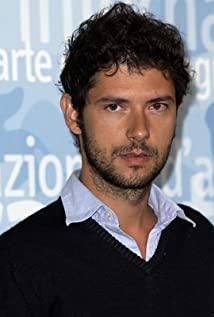(1) Spring is suitable for showing joy to bears, and summer is more popular with people. It seems that in the heat, some things are easier to stir up, especially in occasions like the seaside, if you spend the summer alone in peace and quiet, it is simply unforgivable - only a few paragraphs When the waves came, it was time to explain to myself in the hot weather.
So, in Eric Rohmer's film "A Summer's Tale," Gaspar, a mathematician who goes to the beach to spend his summer vacation, should be ashamed to tell himself. This mathematician who likes to play guitar has been in a dilemma for a while (basically spent an entire vacation) at the center of the three women. In the end, he didn't get any of them, and the possibility of taking all three is another possibility. Limited to a shallow taste.
What a bad luck. The master of mathematics can't solve the problems of this summer. What should I do? He had to write "no solution" under the problem, and then grasping for a funny reason that came by chance, he left the three female compatriots and walked away by himself.
When Gaspar said goodbye to the seaside town, Rohmer brought tears to one of the three girls' eyes. We don't know how the other two felt, or whether Gaspar was taking a deep breath. , or do you need to take a deep sigh? Perhaps, these two breaths must be spit out one after the other.
(2) A little bit about "Summer's Tale": Gaspar took the guitar and went to Ecluse Beach alone.
The real reason for going to the beach was actually lust, to fulfill an ambiguous, even a bit wishful, promise that the girl Lena had in mind would arrive there in a few days.
As a master of mathematics, Gaspar knew the probability of this agreement (his confidence is not very big, Reina may not come, and she may not meet him), but he found a person who went to Ecluse Beach Sufficient condition - a local friend went on vacation, and the house was vacated and reserved for him.
Under the guise of the "incident" of vacating the house, Gaspar "justified" his actions. Now that he was settled on the beach, changed his clothes and started walking along the beach, just as he was about to go swimming, Margo, who came out of the water, said hello to him.
Gaspar was not sure whether the girl in front of him was someone he knew. After asking, he knew that Margo was working in a nearby restaurant for a summer job, and last night, he ate at the restaurant where she worked.
Note the "accidental" of this encounter, which is a great thing in the moral imperative of the Master of Mathematics: Gaspar told Margo in a follow-up conversation, "We (Gasper) Lena and Lena) never dated, just met by chance. It's a habit we're used to."
"'A habit by chance,' that's a beautiful phrase." That was Margo's response at the time, after they had already After several rounds of exchanges, it turned out that Margo was studying anthropology at the university, she also had a boyfriend, and she just happened to be waiting for him to come to the beach - "I waited faithfully for him to come back, like a sailor's wife. I'm lucky Great, I can work in the restaurant with my aunt and make some money. So, I'm pretty free. Tomorrow, I'm going to see an old sailor. Come with me if you want. Do you have a car?" Margo asked Gass Pal sent an invitation, the latter was invited, and the two also talked about a round of music Gaspar liked on the way...
Rena really didn't appear on Gaspar's presumed day, in Margo's eyes , Gaspar should not wait any longer, he should find a girl and spend the summer time in a summer way.
Gaspar met Solena at a gathering of Margo's friends, and the two met again a few days later. As if by another chance, Gaspar once again used this chance to justify his actions when he got into Solena's car and went to play with the latter's aunt and uncle.
The time with Solena's aunt and uncle was good. The two were regarded as lovers by their elders. Gaspar also played his new song, and Solena participated in the singing - "I am an island girl, Everyone calls me a pirate... I love the wind, I love the waves, I ride the wind and the waves, like splitting the sea of people, the sea of people, the sea of people...".
When things went smoothly, Solena expressed an attitude, a moral order of hers - not to go to bed for the first time. When Gaspar later told Margo about his story with Solena, Margo hid her jealousy, but kept telling the truth—she was a "substitute for a substitute" (Solena). replaces Reina, and Margo replaces Solena).
The situation progressed roughly as Margo knew, but bad things happened, and Reina suddenly appeared after the replacement.
This disrupted the agreement between Gaspar and Solena, and the two were going to continue their vacation elsewhere. Faced with this situation, Gaspar's response was to give up Solena. It seemed that Solena's accidental appearance was to prove his love for Lena. After all, Solena was just a substitute.
But Reina didn't give the response Gaspar needed. She turned down the invitation to go on vacation to another place with Gaspar, and even spoke ill of him and scolded him. Gaspar quickly returned the invitation to Solena, but when the Gaso duo's plan continued to advance, "true love" Reina changed her mind again.
So the real problem appeared. Between Reina and Solena, Gaspar couldn't make a bet. He couldn't guarantee whether the neurotic Reina would break the contract again. The summer vacation was coming to an end. I don't know how to deal with the travel promise I made with the two girls.
He turned to Margo, hoping to get advice and comfort from this girl, but how could it be possible to get help from "substitutes for substitutes"? Things still don't go his way, the three girls are chafing him, and when it's time to make a decision, Gaspar gets a life-saving
call from someone who is willing to sell the eight-track recorder Gaspar has always wanted. Now, please be sure to go back and buy it soon.
Suddenly, Gaspar was freed, and he took advantage of this accident very firmly, he left the three girls, and gave up the still advancing, made to Solena and Reina together. Travel booking.
He was gone. When he left, Margo, who watched him go away, shed a little tear.
(3) In the narrative of this story, I repeatedly explained the concept of "contingency", which I thought was the most fluent passage and the most obstructive barrier in this emotional labyrinth.
In many reviews of "Summer's Tale" this seems to be overlooked, but I call attention to a perhaps "suggestive" detail - why the hero is a mathematician and why he is called Gass Parr? Is this alluding to the mathematician-philosopher's "Pascal" and his notorious (or well-known) gambler mentality?
Obviously, Gaspar in "Summer's Tale" uses chance again and again as a justification. In his mind, chance and "good" are linked, and since chance is valued, he must act like a gambler.
His attitude towards the three girls is a seemingly clever game, and his bets are constantly moved by "accidents", from the original Lena to the later Solena (before he was involved in the ambiguous relationship with Margo ), then immediately turned back to Reina, and soon began to be indecisive between Reina and Solena, and ended up with Margo again, when the bet was on Margo (a bet with a better chance of winning), A huge, incredible accident happened—someone sold a tape recorder.
It is really good to have God's help, all the bets have been withdrawn, and the game is completely over.
(4) I think Rohmer has serious doubts about Pascal's game-like thinking.
In another of his films, Manuit chez Maud, the protagonist Louis, also a mathematician (and a Catholic), is taken by a friend to his friend's girlfriend, Maud, who seems to be It was a deliberate "design" by a friend. Maud and Louis stayed one night, one night alone. (The friend seems to want to see the good show of this Catholic. They have talked a lot about Pascal before, and the two think to the left. Louis rejects Pascal. The friend seems to want to use Louis' behavior to prove his hypocrisy.)
(5) So what is Pascal's gambler mentality? In Pascal's view, chance is the only destiny that the world can grasp, and proper speculation is the only way to infinitely approach God.
Pascal's argument is easier to express: whether God exists or not, you will not suffer from believing in his existence, and may benefit from it. Then, go to the communion like a beast believes in food, because that is what a gambler should do. The best choice to do. As for the so-called beliefs (psychological, emotional, spiritual, etc. a bunch of empty words), it is not provable, so it is not the correct motivation of the original itself, the real legitimate behavior is the behavior of gamblers.
(6) Going back to "Summer's Tale", it is indeed difficult to say that the behavior of the mathematics master Gaspar has any exact emotional thrust. We can say that the desire to meet Reina at the beginning was out of emotional needs, but the accidental vacancy, And the fact that the previous date was all accidental makes this emotional reason absurd. It seems that there is no such bargaining chip (vacant room) that is conducive to gambling, then Gaspar will not go to the beach to find Reina, that is to say , it is the psychology of the gambler that drives Gaspar's behavior (at least he says so).
In terms of the attitude towards the other two girls, as well as the problem with the three girls, including the last-ditch antics, we can all say that the emotional thrust is a lie. We saw this man act like we saw a gambler.
It is a pity that in Gaspar, and also in Pascal's moral imperative, there is the following: Gamble, let go of emotions (or gamble under the guise of emotions) -
for gambling is an infinitely close for "good" behavior.
Do you think Gaspar is right? Do you think Pascal said it well? Do you find it comforting to have Louis against Pascal at Maud's bedside?
View more about A Summer's Tale reviews









